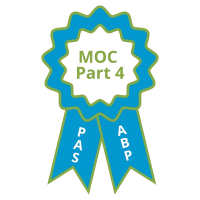Hospital Medicine Works in Progress
Session: Hospital Medicine Works in Progress
WIP 79 - Make Haste to not Waste: Intentional IV Antibiotic Prescribing on the PHM Service
Sunday, April 27, 2025
8:30am - 10:45am HST
Publication Number: WIP 79.7377
Taylor A. Ford, Emory University School of Medicine, Decatur, GA, United States; Lucie Fan, Emory University School of Medicine, Decatur, GA, United States; Whitney Sherry, Emory University School of Medicine, Atlanta, GA, United States; Preeti Jaggi, Emory University School of Medicine, Decatur, GA, United States

Taylor A. Ford, MD (she/her/hers)
PHM Fellow
Emory University School of Medicine
Decatur, Georgia, United States
WIP Poster Presenter(s)
Background: Antibiotic waste frequently occurs in pediatric hospitals, and has significant medical, financial, and environmental impacts. In children’s hospitals, weight-based dosing leads to high volume of unused medications that cannot be restocked, unlike adult settings where standard dosing can be utilized. Systematic constraints (e.g., infrequent batch times from the pharmacy requiring significant lead time) lead to wasted drugs. In addition to the obvious financial loss, there are environmental impacts. Wasted drugs need to be disposed of with autoclaving or incineration and results in a large amount of unnecessary plastic waste that is disposed of in landfills. The impact on the environment is a growing concern and threatens the health of all children. Recent data highlighted antimicrobial waste from a tertiary pediatric healthcare system, quantifying both financial and environmental impacts. This article sparked efforts to reduce specific waste throughout the same institution. This quality improvement (QI) sutdy aimed to decrease ampicillin waste, in particular, which was identified as the most wasted antimicrobial on the general pediatrics service
Objective: The objective of this QI study is to decrease antibiotic waste at a pediatric healthcare system. We aimed to decrease ampicillin waste on the Hospital Medicine service from an average of 243 doses per 1000 patient-days by 20% to 195 doses per 1000 patient-days by December 2024
Design/Methods: The study used the Model for Improvement, implementing plan-do-study-act (PDSA) cycles. The first cycle focused on educating prescribers about pharmacy batch times to improve discharge planning. The second cycle involved daily reminders from pharmacist during huddles to support discharge planning. The final cycle updated the inpatient uncomplicated community acquired pneumonia admission order set to preselect Ampicillin to Amoxicillin conversion after 24 hours. The primary outcome measure is Ampicillin waste reduction, with process measures tracking order set use, and balancing measures monitoring Amoxicillin waste and length of stay


